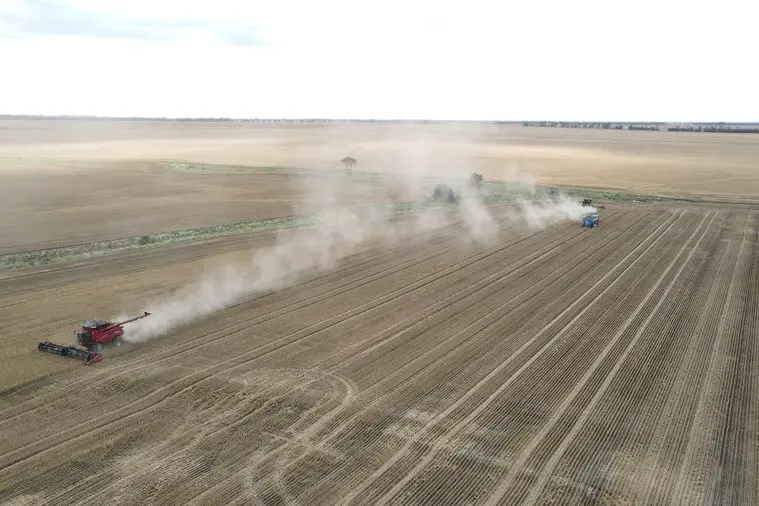PHOTO
Heavy rain sweeping through southeastern Australia has damaged wheat crops, potentially shrinking production by more than 100,000 tons and turning up to 1 million tons of milling wheat into lower-quality feed grain, analysts said.
Australia is one of the world's largest wheat exporters and is more than halfway through this year's harvest.
Baking heat and low rainfall earlier in the year cut forecast production to 25-28 million metric tons from about 40 million tons last year, but high quality was expected.
November has turned wetter, and in 24 hours between Tuesday and Wednesday more than 200 millimetres (7.9 inches) of rain fell in parts of New South Wales, and more than 80 millimetres in parts of Victoria, Australia's weather bureau said.
The bureau said a severe weather warning remained in place for rain and damaging winds in parts of the southeast, where the harvest is in full swing.
Heavy rain stops large machinery from operating and crops left in fields can grow fungus or sprout.
"Farmers are parked up. You can't harvest a paddock with sodden ground," said Andrew Whitelaw at consultants Episode 3, adding that 50,000 to 130,000 tons of wheat could be lost and half a million tons downgraded to lower quality.
Ole Houe at IKON Commodities said as much as 100,000 tons could disappear and 1 million tons may be degraded from milling to feed wheat.
Rod Baker at Australian Crop Forecasters said that he was more optimistic, but that up to 50,000 tons could be lost and 500,000 tons shunted to feed quality.
All the analysts cautioned that estimates could change and depended on weather in the coming days.
"It's really hard to quantify until we start getting harvest results in," Baker said.
Although it hurts wheat, rain should boost Australian summer crops such as cotton and sorghum, analysts said.
"Before this rainfall, farmers in northern New South Wales and Queensland were really scratching their heads about whether to put in sorghum," said Vitor Pistoia at Rabobank. "Now they have more confidence." (Reporting by Peter Hobson. Editing by Gerry Doyle)





















